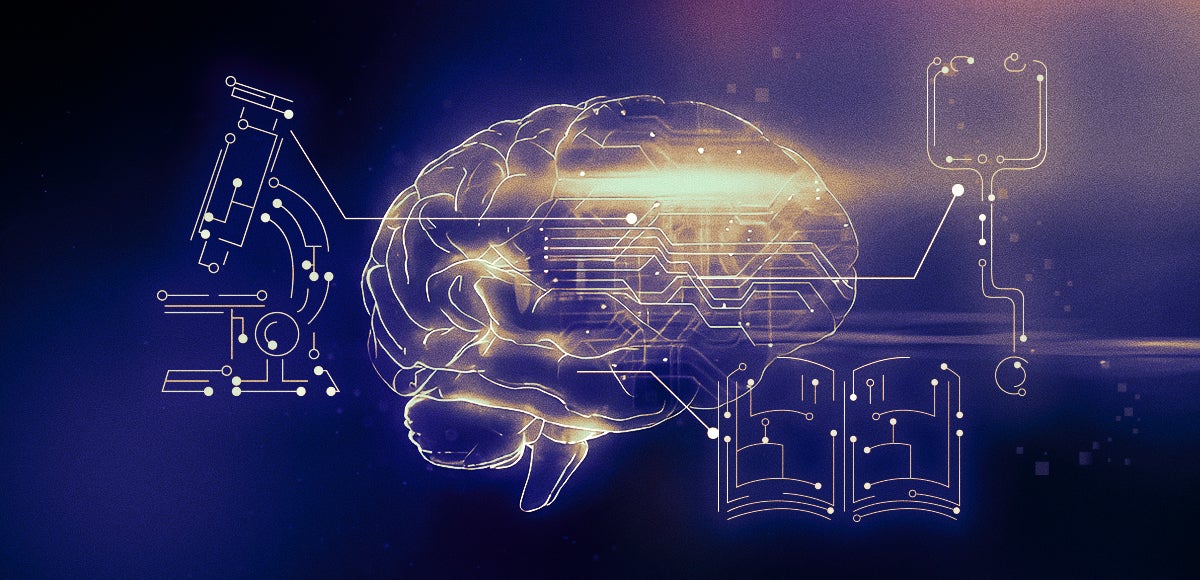Unlocking the power of data has become crucial for businesses in today’s ever-evolving landscape. As technology advances, so does the need for effective business analytics training that equips professionals with the skills to harness valuable insights and drive strategic decisions. Enter ChatGPT, an AI-powered tool that is revolutionizing the way we approach business analytics training. With its impressive capabilities and real-life applications, ChatGPT is poised to transform how businesses analyze data and make informed decisions. In this blog post, we will explore how ChatGPT enhances business analytics training, showcase its advantages through case studies, and provide tips on incorporating it into your own training programs. Get ready to discover a new era of data-driven success!
The Importance of Business Analytics Training
Business analytics training is crucial in today’s data-driven business landscape. It equips professionals with the skills and knowledge needed to make informed decisions based on data insights. With the vast amount of information available, businesses that can effectively analyze and interpret data have a competitive edge.
One key reason why business analytics training is important is because it helps organizations identify trends and patterns in their data. By analyzing historical and real-time data, businesses can uncover valuable insights that drive strategic decision-making. These insights enable companies to optimize processes, improve efficiency, and identify new opportunities for growth.
Business analytics training enables professionals to develop proficiency in using advanced analytics tools and techniques. This includes statistical analysis, predictive modeling, machine learning algorithms, and data visualization tools. With these skills at their disposal, professionals can extract actionable intelligence from complex datasets.
Another aspect of business analytics training importance lies in its ability to enhance problem-solving capabilities within an organization. When employees are trained in analytical thinking, they become adept at identifying problems early on and finding effective solutions based on evidence rather than intuition alone.
By having a well-trained workforce proficient in business analytics techniques, organizations can make more accurate forecasts and predictions about future outcomes. This leads to improved planning processes that take into account potential risks or opportunities.

How ChatGPT Enhances Business Analytics Training
1. Enhanced Data Analysis: ChatGPT empowers business analytics training by providing a powerful tool for data analysis. It can quickly analyze large datasets, identify patterns, and uncover valuable insights that might have been missed otherwise. With its natural language processing capabilities, analysts can ask complex questions in plain English and receive accurate responses.
2. Real-Time Decision-Making Support: In today’s fast-paced business environment, real-time decision-making is crucial. ChatGPT enables businesses to make informed decisions on the fly by providing instant access to relevant information and insights. Analysts can interact with the model in real-time, allowing them to explore different scenarios and evaluate potential outcomes before making critical choices.
3. Personalized Learning Experience: Traditional business analytics training often follows a one-size-fits-all approach. However, ChatGPT offers a personalized learning experience tailored to individual needs and skill levels. It can provide targeted recommendations for further study areas based on an individual’s strengths and weaknesses.
4. Simplified Complex Concepts: Business analytics involves dealing with intricate concepts that can be challenging for beginners or even experienced professionals at times. ChatGPT simplifies these complex ideas by breaking them down into easily understandable explanations, making it easier for learners to grasp difficult concepts without feeling overwhelmed.
5.Improved Collaboration: Collaboration plays a vital role in effective business analytics training as teams work together towards common goals.
ChatGPT facilitates collaboration by acting as an interactive teammate during training sessions.
Real-Life Applications of ChatGPT in Business Analytics
ChatGPT, with its advanced language generation capabilities, is revolutionizing the field of business analytics. This AI-powered technology has a wide range of real-life applications that can enhance decision-making processes and drive business growth.
One key area where ChatGPT proves invaluable is in data analysis. By feeding it large datasets, businesses can extract valuable insights and trends to inform their strategies. With the ability to generate human-like responses, ChatGPT can also assist analysts in interpreting complex data sets and identifying patterns that might have been overlooked.
Another practical application for ChatGPT lies in predictive analytics. By leveraging historical data and machine learning algorithms, businesses can use this powerful tool to forecast future outcomes accurately. Whether it’s predicting customer behavior or market trends, ChatGPT enables organizations to make informed decisions based on reliable projections.
Furthermore, ChatGPT plays a vital role in natural language processing (NLP), allowing businesses to improve their text mining and sentiment analysis capabilities. It helps companies understand customer feedback more effectively by analyzing vast amounts of unstructured data from social media platforms or surveys.
In addition to these applications, ChatGPT facilitates automated reporting by generating concise summaries from extensive reports or documents. Businesses no longer need hours or days to distill important information; instead, they can rely on the speed and accuracy of AI-generated summaries provided by ChatGPT.
These are just a few examples highlighting how businesses are leveraging the power of ChatGPT in their analytics processes. As this technology continues to evolve rapidly, we can expect even more innovative use cases emerging across various industries.

Advantages of Using ChatGPT for Business Analytics Training
Advantages of Using ChatGPT for Business Analytics Training:
1. Enhanced Learning Experience: Incorporating ChatGPT into business analytics training programs can greatly enhance the learning experience for participants. With its conversational and interactive nature, ChatGPT provides a more engaging and personalized approach to learning.
2. Real-Time Feedback: One of the major advantages of using ChatGPT in business analytics training is the ability to receive real-time feedback on queries and problem-solving exercises. This immediate feedback helps learners understand their mistakes, correct them promptly, and reinforce their understanding of concepts.
3. Customizable Content: ChatGPT allows businesses to create customized content that caters specifically to their industry or organization’s needs. By tailoring the training materials to address real-life scenarios and challenges faced by employees, businesses can ensure that the training is directly applicable and relevant.
4. Scalability: Unlike traditional classroom-based training, implementing ChatGPT for business analytics enables scalability without compromising on quality. The AI-powered chatbot can handle multiple users simultaneously, allowing organizations to train large groups of employees efficiently.
5. Cost-effective Solution: Investing in software like ChatGPT eliminates certain costs associated with traditional classroom-based training, such as venue rental fees or travel expenses for trainers or participants. This makes it a cost-effective solution for organizations looking to provide comprehensive business analytics training across different locations.
6. Accessible Anytime, Anywhere: With an internet connection, participants can access ChatGPT from anywhere at any time convenient for them—be it during work hours or after-hours—enabling flexible learning options that suit individual schedules.
7. Improved Retention Rates: Studies have shown that interactive learning methods lead to better knowledge retention rates compared to passive approaches like lectures or reading materials alone.
Tips for Businesses Looking to Incorporate ChatGPT into their Training Programs
Tips for Businesses Looking to Incorporate ChatGPT into their Training Programs:
1. Start with a Clear Objective: Before integrating ChatGPT into your business analytics training program, define your goals and objectives. Identify the specific areas where you want to improve efficiency or gain insights.
2. Customize the Model: While ChatGPT is powerful out-of-the-box, take advantage of its customization capabilities. Fine-tune the model using domain-specific data to make it more accurate and relevant to your industry.
3. Establish Guidelines: Develop guidelines and protocols for using ChatGPT within your organization to ensure consistent and appropriate usage. This will help maintain control over the quality of responses generated by the system.
4. Train Users: Provide thorough training on how to effectively utilize ChatGPT in business analytics scenarios. Familiarize employees with best practices, such as asking precise questions and interpreting results accurately.
5. Encourage Collaboration: Facilitate collaboration between analysts and ChatGPT by encouraging discussions about its output. Combining human expertise with AI-generated insights can lead to deeper understanding and better decision-making.
6. Monitor Performance: Continuously monitor ChatGPT’s performance in real-world situations during training programs. Keep track of its accuracy, identify any biases that may arise, and address them promptly.
7. Implement a Feedback Loop: Create an avenue for users to provide feedback on their experiences with ChatGPT during training sessions or through dedicated channels within your organization.
8. Seek Expert Support : If you encounter challenges while incorporating ChatGPT into your training programs , seek expert support from professionals experienced in AI implementation.
Remember, successfully integrating chatbots like GTPChat into business analytics training requires careful planning, customization,and continuous evaluation.
If done right,it can significantly enhance decision-making processes,reveal new insights,and empower businesses towards success!
The Future of Business Analytics Training
As we look ahead to the future, it’s clear that ChatGPT will continue to play a significant role in enhancing business analytics training. The advancements in AI and natural language processing are opening up new possibilities for businesses to leverage this technology for their analytical needs.
In the coming years, we can expect even more sophisticated versions of ChatGPT that are capable of understanding complex data sets and providing insightful analysis. This will empower professionals to make data-driven decisions faster and more effectively.
As the technology evolves, we may see ChatGPT being integrated into existing business intelligence tools and platforms. Imagine having an intelligent assistant right within your analytics dashboard, ready to answer any question you have or provide valuable insights on the fly.
By incorporating ChatGPT into their training programs, businesses can equip their employees with practical skills that drive innovation, optimize strategies, and boost overall performance. With real-life applications spanning industries such as marketing research, financial analysis, supply chain optimization, customer behavior analysis – the possibilities are endless.


